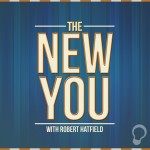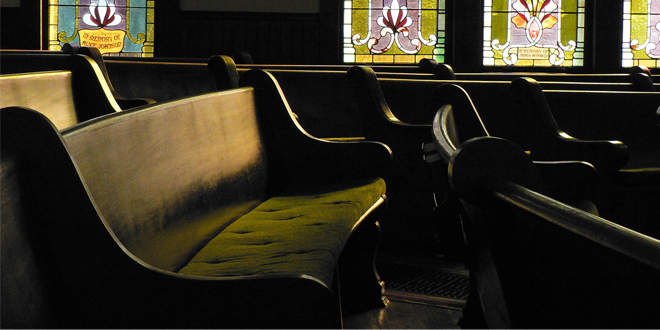Today, I want us to talk about some modern departures to true worship. But first, let me point you back to this week’s episodes of The New You. If you haven’t already done so, go to thelightnetwork.tv and listen to episodes 71-73 of The New You on which we talked about some Old Testament departures from true worship, followed by some applications from those accounts and, finally, the fact that God has specified how we are to worship today.
With those thoughts in mind, let’s tackle four departures from true worship in our day.
1. Hand Clapping In Worship
I know there are congregations all over that allow hand clapping during the singing, during the preaching, and perhaps even at a baptism. This concerns me. Listen: I’m not concerned because I didn’t grow up with hand clapping. I’m concerned about it because hand clapping during worship is simply not authorized. It is an addition to God’s specified commands to sing using our hearts and our voices. It is not expedient in aiding our singing. Further, when people clap during a sermon or after a baptism, it places the emphasis on the person rather than on Jesus, His gospel, and what He has done in the life of a believer who submits to baptism. There’s just no place for that in true worship.
2. Praise Teams
The passages in Ephesians 5 and Colossians 3 clearly state that we are to sing to each other. That tells me that everyone is to participate. Therefore, utilizing a praise team that would sing in our place is unauthorized and is, therefore, unacceptable worship according to the New Testament pattern.
3. Lifting Hands or Body Swaying
You know, 1 Timothy 2:8 speaks of “lifting holy hands” in a worship context. However, this is not a prayer posture. The Bible often uses the hands to represent the work that someone does. James writes, “Cleanse your hands, you sinners; and purify your hearts, you double-minded” (James 3:8). He isn’t saying that they need to wash their physical hands. Instead, the point is that their lives need to be holy. So it is in 1 Timothy 2.
I think some modern worshipers in our culture are appealing to emotionalism instead of to Scripture. Don’t get me wrong, there is an emotional aspect to worship. No question about that. However, we must avoid emotionalism as an effort to feel closer to God without actually being closer to Him. To state it differently, the way we get closer to God is by doing the things that He tells us to do.
4. Instrumental Music in Worship
There’s a lot that could be said on this subject. However, I don’t know of anything clearer to say than this. Instrumental music is a blatant addition to the New Testament. I know it’s mentioned in the Psalms, and I know that there are many talented people who can play instruments. I also freely admit that I like the sound of instruments. However, none of that matters when I look at the New Testament and see that the only authorized instrument to be played in worship to God is the human heart, coupled with the human voice (Col. 3:16; Eph. 5:19).
Let’s wrap it up: It is so important to do what God wants in the way that He wants it done. God is serious about worship. He has specified how we are to do it. Are we listening, or are we making worship about us?
[divider]
 This is a partial transcript from my weekday podcast, The New You, where we focus on maintaining and accentuating the new that Christ created in each of us as Christians. A new episode is available each Monday through Friday on The Light Network. Click here to see all of the episodes.
This is a partial transcript from my weekday podcast, The New You, where we focus on maintaining and accentuating the new that Christ created in each of us as Christians. A new episode is available each Monday through Friday on The Light Network. Click here to see all of the episodes.




Is there any evidence that adding something to worship is sinful? That’s a presupposition also, if worship procedure is the most important part of the Christian life, it would be nice if we had one example of a complete service and the various things that necessarily must be done.
Hi, Tim
Thanks for your comment. It is a sin to add to or take from any part of God’s teachings (Deut. 4:2; 12:32; Prov. 30:5-6; Rev. 22:18-19). 1 John 3:4 says that sin is missing the mark of God’s law. Since the Bible discusses Christian worship practices, it follows that adding anything to what God has said for those practices is sinful.
The Old Testament teaches us a valuable lesson that we can apply into our New Testament context: deviating from God’s prescriptions for worship is sin. That’s why Cain’s sacrifice was not accepted (Gen. 4:6-8), and that’s why Nadab and Abihu died (Lev. 10:1-2).
I never stated that worship procedure is the most important part of the Christian life. Love for God that motivates us to obey Him seems to be the most important part of the Christian life (Eccl. 12:13; Mat. 22:37-39; John 14:15; 1 John 5:2-3). This blog contains many posts about other aspects of the Christian life. Worship is certainly an aspect of the Christian life. Everything that we do must be done by the Lord’s authority (Col. 3:17).
We have sufficient information (both in inspired principle and the practice of the New Testament church) to worship Gd acceptably today.
I don’t know that I can accept your Old Testament examples. If God is so very specific and detailed on worship procedure in the New Testament, it would make sense to have an example of a very specific, detailed worship service in the New Testament. We do not. It is dangerous to add to scripture… One way to do so is by adding a command or prohibition where God has not
I definitely agree that it is dangerous to add to scripture. I also agree that a full example of a worship service would be helpful. But is it needed? Scriptures about the Lord’s Supper, monetary giving, prayer, singing, and teaching are clear. It seems to me, then, that adding to scripture would be going beyond what passages relative to worship actually teach.
While the Old Testament examples are not exact parallels, we do know that the Old Testament is preserved for us to use as examples to apply into New Testament contexts (Rom. 15:4; 1 Cor. 10:11).
So here’s what I glean from examples like Cain (Gen. 4) and Nadab and Abihu (Lev. 10). They received specific commands from God. They violated those commands and, as a result, their worship was unacceptable before God.
The New Testament speaks of people who worshiped in vain because they taught and practiced commandments of men (Mat. 15:7-9). There were people who worshiped “without knowing” or ignorantly (Acts 17:23). There were also people who practiced “self imposed religion” or will worship (Col. 2:23). Each of these worship offerings were unacceptable.
I’m not comfortable saying that the New Testament is not clear enough for us to know how to worship God acceptably. The Bible is sufficient for doctrine (2 Tim. 3:16-17; 2 Pet. 1:3-4). Jesus said that we can know truth (John 8:32). He also said that true worship exists and that God is seeking true worshipers (John 4:23-24).